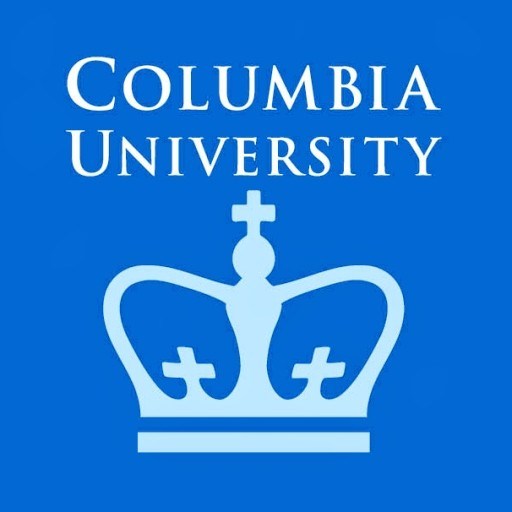Photos of university / #columbia
Anthropology at Columbia is the oldest department of anthropology in the United States. Founded by Franz Boas in 1896 as a site of academic inquiry inspired by the uniqueness of cultures and their histories, the department has fostered an expansiveness of thought and independence of intellectual pursuit. Cross-cultural interpretation, global socio-political considerations, a markedly interdisciplinary approach, and a willingness to think otherwise have, from the outset, informed the spirit of Anthropology at Columbia. Boas himself wrote widely, on pre-modern cultures and modern assumptions, on language, race, art, dance, religion, politics, and much else, as did his graduate students, including, most notably, Ruth Benedict and Margaret Mead. In these current times of increasing global awareness, this same spirit of mindful interconnectedness guides the department. Professors in Anthropology at Columbia today write widely--on colonialism and postcolonialism; on matters of gender, theories of history, knowledge, and power; on language, law, magic, mass-mediated cultures, modernity, and flows of capital and desire; on nationalism, ethnic imaginations, and political contestations; on material cultures and environmental conditions; on ritual, performance, and the arts; on linguistics, symbolism, and questions of representation. They write as well across worlds of similarities and differences--concerning the Middle East, China, Africa, the Caribbean, Japan, Latin America, South Asia, Europe, Southeast Asia, North America, and other increasingly transnational and technologically virtual conditions of being.
The Department of Anthropology has, traditionally, offered courses and majors in three main areas: sociocultural anthropology, archaeology, and biological/physical anthropology. While sociocultural anthropology now comprises the largest part of the department and accounts for the majority of faculty and course offerings, archaeology is also a vibrant program within Anthropology whose interests overlap significantly with those of sociocultural anthropology. Biological/physical anthropology has shifted its program for majors and concentrators to the Department of Ecology, Evolution, and Environmental Biology. Students interested in biological/physical anthropology courses offered in the Department of Anthropology thus should look to E3B for their major or concentration.
Program of study should be planned as early as possible in consultation with the Director of Undergraduate Studies.
Required points: 30 points in the Department of Anthropology.
Required courses for a major in Sociocultural Anthropology:
ANTH UN1002 The Interpretation of Culture, ANTH UN2004 Introduction to Social and Cultural Theory, and ANTH UN2005 The Ethnographic Imagination.
Required courses for a major in Archaeological Anthropology:
ANTH UN1002 The Interpretation of Culture, ANTH UN2004 Introduction to Social and Cultural Theory, and ACLG UN2028 Pasts, Presents & Futures: An Introduction to 21st Century Archaeology.
Students who are interested in archaeology are strongly advised to include field and lab experience as part of their degree. Please contact the archaeology adviser, Prof. Zoe Crossland to discuss this.
Biological/physical anthropology: Students pursuing a major in this field should refer to the Department of Department of Ecology, Evolution, and Environmental Biology.
Senior Thesis
Anthropology majors with a minimum grade point average of 3.7 in the major who wish to write an honors thesis for consideration for departmental honors may elect to enroll in The Senior Thesis Seminar in Anthropology (UN3999, 8 points). Students should have a preliminary concept for their thesis prior to enrolling in the course. Students may also pursue independent study projects with a professor. The thesis is not required of majors.
Departmental Honors
Departmental Honors are established and awarded by most Columbia College departments with approval from the College Committee on Instruction. Each year, departmental honors are awarded to no more than ten percent of the graduating majors. Students become eligible for departmental honors when they have a grade point average of at least 3.7 in major courses, and have completed an honors thesis. From within this group of eligible candidates, departmental faculty make recommendations to the College Committee on Honors, Awards and Prizes. The Committee makes the final decisions about which students receive departmental honors.
Requirements
- TOEFL (Test of English as a Foreign Language). You are urged to visit www.toefl.org as quickly as possible for more information on this examination. A minimum score of 600 (paper-based test) or 100 (Internet-based test) is necessary for admission to Columbia. Your score must be reported directly to Columbia by the testing service, using report code 2116.
- IELTS (International English Language Testing System). You are urged to visit www.ielts.orgas quickly as possible for more information on this examination. A minimum score of 7.0 is necessary for admission to Columbia. Your score must be reported directly to Columbia Undergraduate Admissions.
- If you have a 650 or higher on the Critical Reading or Writing sections of the SAT, or a 29 or higher on the English or Reading sections of the ACT, you are exempt from taking an English proficiency examination.
- An official high school transcript from all high schools attended
- One high school counselor’s recommendation and school profile
- The completed Mid-Year Report
- Autobiographical information
- $85 application fee or fee waiver request
- Lists and descriptions of a student’s achievements, activities, employment and summer activities
- Personal essay
- Columbia-specific questions
- SAT or the ACT
- The appropriate SAT code is 2116 and the appropriate ACT code is 2717
- Two Teacher Recommendations. For engineering applicants, one must come from a math or science teacher
Want to improve your English level for admission?
Prepare for the program requirements with English Online by the British Council.
- ✔️ Flexible study schedule
- ✔️ Experienced teachers
- ✔️ Certificate upon completion
📘 Recommended for students with an IELTS level of 6.0 or below.
Scholarships
- Undergraduate Research Fellowships




